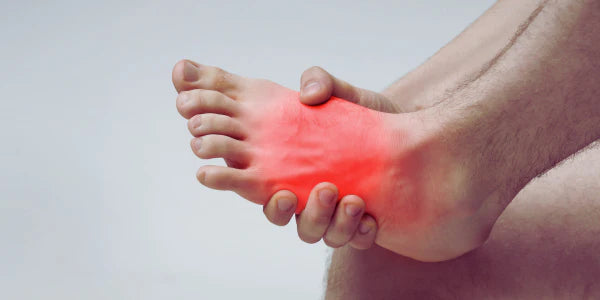Numbness is a common condition that many people experience at some point in their lives. It can occur in various parts of the body, including the hands, feet, legs, and even the head. While often temporary, it can be unsettling and, in some cases, indicate an underlying health issue. This article delves into the meaning of numbness, its causes, and potential treatments.
 What is Numbness?
What is Numbness?
Numbness is a loss of sensation or feeling in a part of your body. It can also be accompanied by a tingling sensation, often described as "pins and needles." While numbness is usually harmless and temporary, it can sometimes be a symptom of a more serious medical condition.
Common Areas Affected by Numbness
-
Hands and Feet: Tingling in hands and feet is a widespread experience and can be due to various factors, including pressure on nerves or poor circulation.
-
Legs: Numbness in legs can occur due to prolonged sitting or standing, leading to restricted blood flow.
-
Head: Although less common, numbness in the head can result from nerve-related issues or other medical conditions.
Symptoms Associated with Numbness
-
Tingling sensation in hands and feet
-
Loss of feeling in affected areas
-
Weakness or inability to move the affected part
-
Pain or a burning sensation
Causes of Numbness
Understanding what causes numbness and tingling in arms and hands, or any other part of the body, is essential for identifying appropriate treatments.
Circulatory Issues
Numbness often occurs when blood flow to a specific area is restricted. This can happen when sitting or standing in one position for too long, resulting in numbness in the legs or feet.
Nerve Compression or Damage
Pressure on nerves can lead to numbness. This might be due to repetitive motions, injury, or conditions like carpal tunnel syndrome. Nerve damage, often seen in diabetes patients, can cause peripheral neuropathy, leading to tingling and numbness in the extremities.
Medical Conditions
-
Diabetes: High blood sugar levels can damage nerves, causing neuropathy.
-
Multiple Sclerosis: This condition affects the nervous system, leading to numbness or tingling sensations.
-
Stroke: Numbness on one side of the body can be a sign of a stroke and requires immediate medical attention.
 Other Causes
Other Causes
-
Vitamin deficiencies
-
Infections
-
Exposure to toxins
-
Certain medications
How to Treat Numbness
Treatment for numbness depends on its cause. Here are some common approaches:
Home Treatments
-
Rest and Position Changes: Sometimes, simply changing your position or taking a break from repetitive activities can relieve numbness.
-
Exercise: Regular physical activity improves circulation and can help reduce tingling in legs and feet.
-
Warm Compress: Applying warmth can help increase blood flow and alleviate numbness.
-
Footwear: Wearing appropriate shoes or neuropathy footwear can reduce pressure on nerves in the feet.
Medical Treatments
-
Medications: Anti-inflammatory drugs or pain relievers may be prescribed to address underlying conditions causing numbness.
-
Physical Therapy: Targeted exercises can improve nerve function and reduce symptoms.
-
Surgery: In some cases, surgery may be necessary to relieve nerve pressure.
When to Seek Medical Advice
While numbness is often temporary, persistent or severe numbness, especially if accompanied by other symptoms like weakness or difficulty speaking, should be evaluated by a healthcare professional. They can help determine if there's an underlying condition that needs treatment.
Questions to Ask Your Doctor
-
What is tingling in the legs a symptom of?
-
How to get rid of numbness in the leg at home?
-
What causes tingling throughout the body?
-
Why does numbness occur in my hands and feet?
Preventive Measures
Taking steps to prevent numbness can help maintain good nerve health:
-
Healthy Diet: Ensure adequate intake of vitamins and minerals to support nerve function.
-
Regular Exercise: Keeps blood flowing efficiently and prevents nerve compression.
-
Ergonomic Workspaces: Proper desk setup can prevent nerve strain in hands and arms.
Conclusion
Numbness is a sensation many people experience, but understanding its causes and treatments can help alleviate concerns and improve quality of life. Whether it's adjusting your posture, engaging in regular exercise, or consulting with a healthcare professional, addressing numbness promptly can prevent further complications. By staying informed and proactive, you can manage and reduce numbness effectively.








